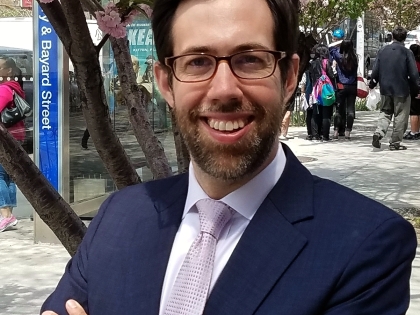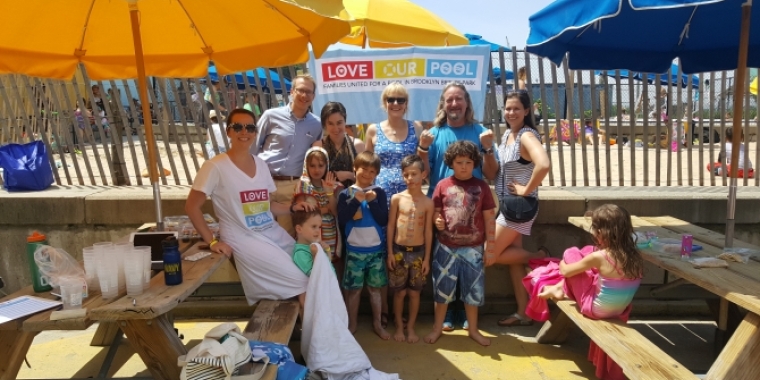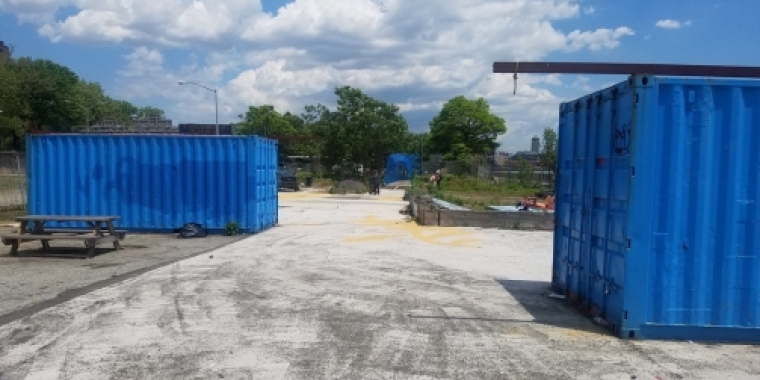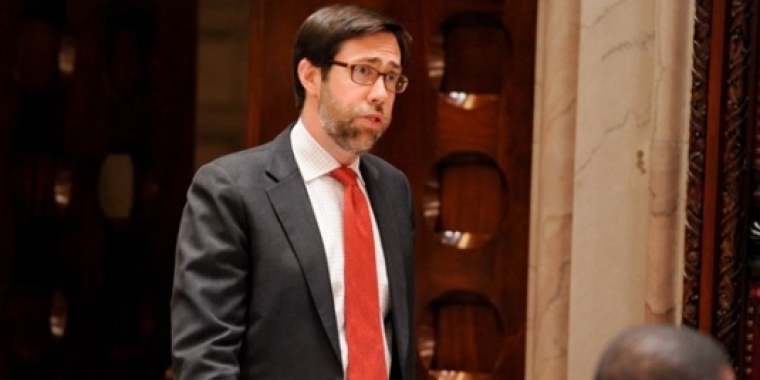
SENATOR SQUADRON JOINS ADVOCATES, ELECTEDS TO RALLY AGAINST HYDROFRACKING
November 30, 2011
NEW YORK -- Today, State Senator Daniel Squadron submitted testimony to DEC's final public hearing on hydrofracking, held at the Tribeca Performing Arts Center in his district. Before the hearing, Senator Squadron rallied with advocates and elected officials in support of a state-wide ban on fracking. The testimony is copied and attached below.
"If fracking's not worth the risk in the New York City and Syracuse watersheds, it's not worth the risk in any New York communities," said Senator Squadron. "We simply do not know how the many chemicals used in fracking will impact our long-term heath and our environment. History is filled with examples in which understanding the entire picture would have prevented costs that were never worth it. We don’t want to look back and wish that we had not taken this risk. New York must implement a state-wide ban on hydrofracking now."
Testimony Of State Senator Daniel Squadron at the Department of Environmental Conservation Public Hearing Regarding the Revised Draft Supplemental Generic Environmental Impact Statement on the Oil, Gas and Solution Mining Regulatory Program (September 2011)
November 30, 2011
My name is Daniel Squadron and I represent the 25th Senate District in the New York State Senate. My district includes Greenpoint, Williamsburg, Vinegar Hill, DUMBO, Fulton Ferry, Brooklyn Heights,Boerum Hill, Cobble Hill, Carroll Gardens and Gowanus in Brooklyn, and the neighborhoods of Tribeca, Battery Park City, the Lower East Side, Chinatown, the Financial District, Little Italy, SoHo and the East Village in Manhattan. Thank you for giving me the opportunity to testify today.
At the outset, I would particularly like to recognize the leadership of Manhattan Borough President Scott Stringer, who is coordinating a broad-based advocacy effort to protect the state’s water supply.
As you know, hydraulic fracturing is a process by which millions of gallons of water and fracturing fluids are pumped into horizontal wells to access natural gas in mineral formations. Some of the chemicals that are used are toxic, long-lasting and largely untested, and are difficult or impossible to remove once they enter the natural environment. We simply do not know how the many chemicals used in hydrofracking will impact our long-term health and our environment.
That is why I've consistently voiced deep concerns about hydrofracking anywhere in the state of New York. The revised Department of Environmental Conservation (DEC) Supplemental Generic Environmental Impact Statement (SGEIS) report does not allay the very real concerns about the risks posed to the health of New Yorkers and our environment. New York must implement a state-wide ban on hydrofracking now.
Earlier this year, along with many of my Democratic colleagues in the Senate, I co-sponsored Senator Avella’s bill, S4220, that prohibits the use of hydrofracking in the extraction of oil and gas across the state. I also co-sponsored legislation introduced by Senator Avella, S4616, that would make all hazardous waste produced from oil and gas drilling subject to the same regulations for hazardous waste generation, transportation, treatment, storage, and disposal that apply to other industries operating in New York. The DEC-proposed regulations in the revised SGEIS report falls short of both these bills.
There is an urgency being injected into this decision making process that is contrary to the time it takes to evaluate the long term health and environmental impacts of hydrofracking. If there is enough gas to warrant the use of hydrofracking now, surely it will still be present when, after a thorough investigation, the science shows whether it can be done safely.
Throughout history, we've rushed into decisions related to our natural resources and industrial development that we've later come to regret once their negative impact on our health and environment was made clear. Too often we find ourselves saying, ‘if we knew then what we know now…'
The risks around hydrofracking are simply too great. We do not want to look back in thirty years and wish that we had heeded these concerns. Too much is at stake.
###
Media Contact: Amy Spitalnick / 212.298.5565



